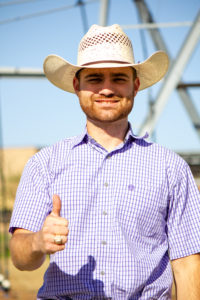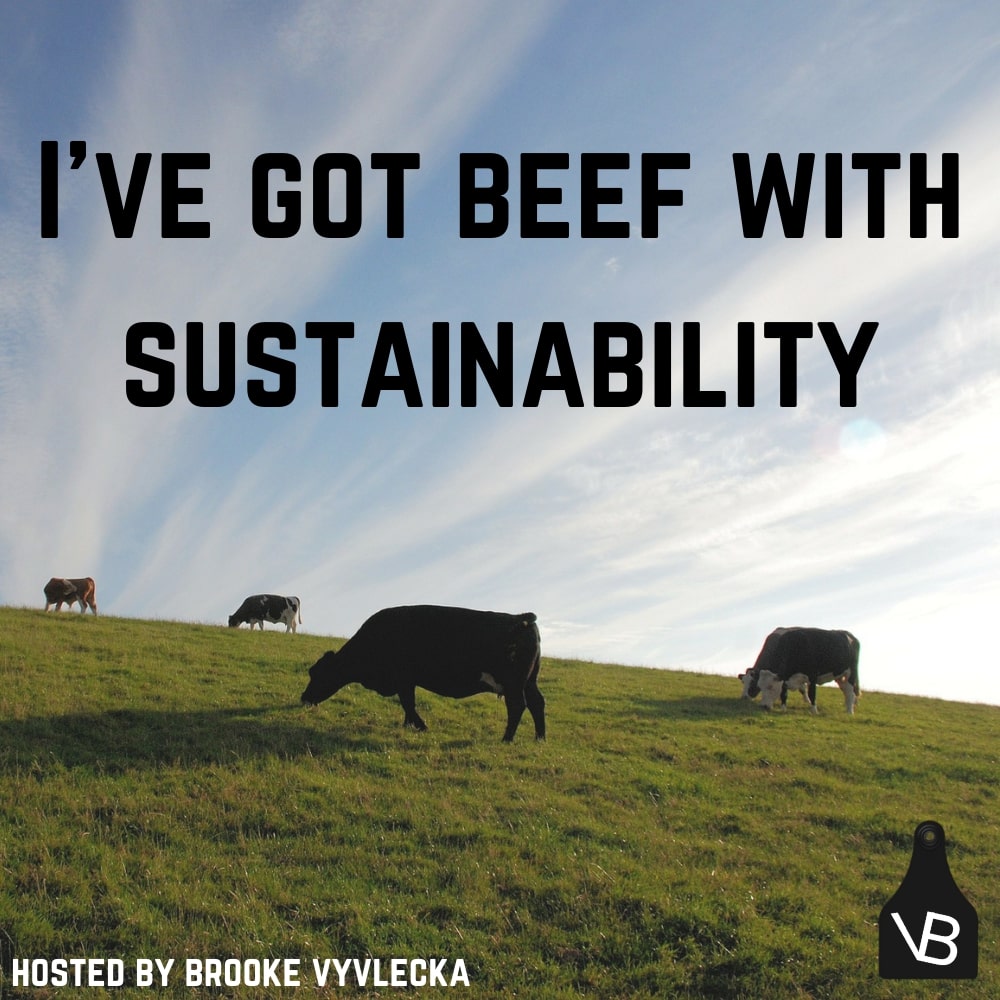Podcast: Play in new window | Download
Episode Summary
For consumers, there is a certain level of credibility that comes from beef producers discussing sustainable production practices. On today’s episode, I sit down with south Texas cattle rancher, Payton Kaiser, and fourth-generation farmer, Blake Foster. They explain how cattle contribute to global sustainability and help meet the needs of a growing population.

Payton and I start the episode by discussing the value of efficiently using resources when it comes to sustainable practices, as well as the importance of water in cattle production. Payton describes how he finds the best ways to use his resources within his cattle operation, the 7P Cattle Co. Additionally, Payton emphasizes how the fact that we still eat beef today proves cattle production has been sustainable for hundreds of years. This is due to cattle’s ability to be upcyclers, which is the process of taking something of low quality and turning it into high quality.
The key to creating a healthy, sustainable food system is effectively using resources, and as Dr. McNeill noted last episode, reducing waste. Blake described how even in food and fiber production, cattle assist in reducing waste to contribute to global sustainability. Additionally, Blake provided a unique perspective on cattle being upcyclers of the land. As he explained, cattle play a pretty important role not only in beef production but also in the production of crops that humans do eat, like corn, cotton and peanuts. Be sure to visit agcj366.tamu.edu for more episodes!
This episode’s Beef Bite:
- Cattle are Upcyclers: Cattle have the unique ability to take low-quality products, like grass and forage, and turn it into high-quality beef full of protein, iron, zinc and B-vitamins.
- Cattle are Natural Fertilizers: Cattle fertilize farmland to help improve soil quality and promote regrowth.

